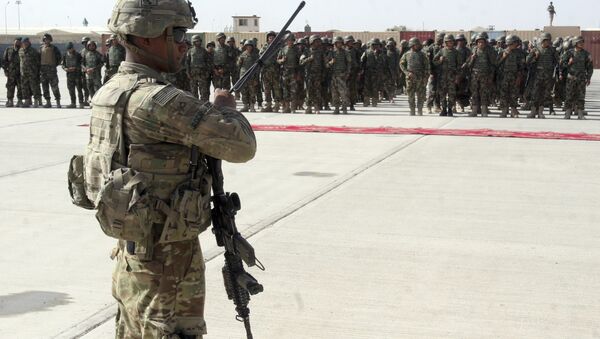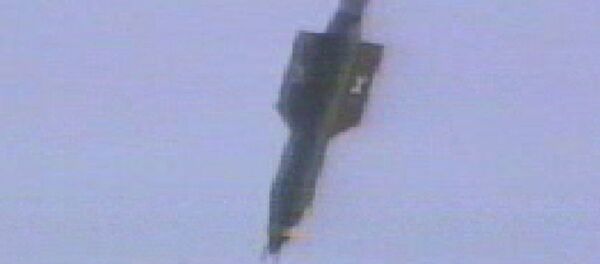WASHINGTON (Sputnik) — The use of a 22,000 pound Massive Ordnance Air Blast (MOAB) bomb, the largest conventional weapon in the US military arsenal, will have no discernible effect in changing the course of the war in Afghanistan.
"The strike on the cave complex in Afghanistan probably killed 150-200 members of the Afghan chapter of the Islamic State [Daesh] terror group (outlawed in Russia). In that sense, it was a modest tactical success," leading tactician and military historian retired US Army Col. Doug Macgregor said on Thursday.
The MOAB, nicknamed "the Mother of All Bombs," was designed during the second Iraq War and carries a conventional warhead weighing 22,600 pounds (10,300 kg).
However, Macgregor, who commanded US armored units in the Battle of 73 Easting in the 1991 Gulf War, cautioned that the use of the weapon was very unlikely to have any significant strategic impact on the wider direction of the Afghan war.
"Strategically, the strike had no impact on the war in Afghanistan where 40,000 Taliban fighters are regaining the ground lost over the last few years and crushing the US trained — and — equipped Afghan army and police," he pointed out.
Macgregor dismissed the notion that the use of the MOAB could reverse the dire conditions facing the Kabul government and he said the developing collapse in Afghanistan was reminiscent of the 2014 collapse of the Iraqi Army in the face of a determined Daesh assault.
"Thus, the strike is not meaningful in any strategic sense. The only conclusion any reasonable military analyst can reach is that the President is badly advised," he said.
Brookings Institution military analyst Michael O’Hanlon made a similar assessment.
The MOAB is "a weapon without the profound effects often attributed to it by folklore! It’s not that super big and not that super bad," he told Sputnik.
The bomb has been in service in the US military since 2003, but Thursday marked the first time the MOAB was used in a combat action.




